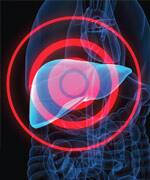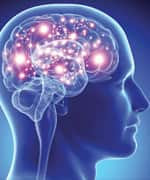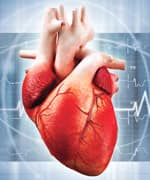Life Extension Magazine®
From Toxic To Not Sick
An Interview With Suzanne Somers
In her new book, Tox-Sick, From Toxic to Not Sick, best-selling author Suzanne Somers investigates environmental toxins as the underlying cause of so many of today’s chronic diseases. Her exhaustive research and interviews with leading physicians can help protect us from the incessant and invisible threat of environmental toxins. In this interview with Life Extension® Magazine, Suzanne discusses some of the important highlights from her new book.
LE: What do you believe is a leading cause of the degenerative diseases affecting the aging population?
SS: The problem is sugar. A high-sugar diet raises your risk for heart disease by promoting metabolic syndrome—a cluster of health conditions that includes high blood pressure, insulin and leptin resistance, high triglycerides, liver dysfunction, and visceral fat accumulation. Insulin and leptin resistance is caused by factors inherent in our modern lifestyle, including diets heavy in processed carbohydrates, sugars such as fructose, refined flours, and industrial seed oils.
Making matters worse, the average American gets inadequate exercise to offset consumption of sugar and processed foods, suffers from chronic stress and sleep deprivation, is exposed to environmental toxins, and has poor gut health (dysbiosis). This is the perfect storm for chronic disease.
LE: You firmly believe that drugs are not the solution to restoring health.
SS: As Americans we have been brainwashed into believing the only way to treat a disease or a condition is with a drug. So many individuals wake up each day and start with a bagel, or toast, or muffin with margarine. And then they grab their antacids, statin pill, diet pill, diuretic, diabetes medication, synthetic hormones, antidepressant, and more. And they wonder why they aren’t feeling well?
We have to ask ourselves, how is the allopathic approach working out? Are people better off as a result of taking the billions of dollars’ worth of drugs we collectively take yearly? Are people cured as a result? An honest assessment would be: No.
Drugs seldom cure. Drugs are for the most part a Band-Aid®, requiring in many cases a lifelong addiction to “maintain” your status quo. Now, granted, I would not want to live in a world without pharmaceuticals, in particular for pain, infection, mental illness, and other things outside my scope.

LE: Why is it so important to avoid pharmaceuticals and over-the-counter medicines unless absolutely necessary?
SS: Every time you take a chemical pharmaceutical pill, you are now compromising your GI tract and weakening the integrity of your intestinal barrier wall. Since your gut is your first line of immune defense, this comprises most of your immune system.
The pill actually masks the symptom, while doing damage to the body. In allopathic medicine the focus is on treating the symptoms. If your symptom is, for instance, high blood pressure, you get a pill to lower it. As I said, allopathic medicine is exactly that, a pill for every symptom. Rarely does orthodox medicine dig deep to find what is causing the symptom.
LE: There’s been a lot of discussion, perhaps even controversy, regarding cell phones and the potential for causing damage to the body. What is your take on this technology that we just can’t live without?
SS: Cell phones are not safe . . . research now shows the connection of cell phones’ electromagnetic rads to brain tumors. After an extensive 11-year report came out squashing the link between mobile phone usage and cancer, a new report from French scientists may turn that on its head. However, although it may raise a specter previously thought banished, the emphasis this time is on cancer and heavy use. In the British Journal of Occupational and Environmental Medicine, researchers write that people who used their mobiles for “more than 15 hours each month over five years on average had between two and three times greater risk of developing glioma and meningioma tumors compared with people who rarely used their phones.” The link between glioma—a type of tumor made from gliol cells that account for 80% of all brain tumors—and long-term mobile phone use has been hard to prove, but the new study aims to tackle that. The new study looked at 253 cases of glioma and 194 cases of meningioma from four French departments between 2004 and 2006. Scientists then compared these to 892 healthy people from the same local population. According to the newspaper The Guardian, the comparison “found a higher risk among those who used their phone intensively, especially among those who used it for their work, such as in sales. The duration of use in this category ranged from between two and 10 years, averaging at five years.”
In the 20th century, thousands of manmade chemicals were introduced into our environment. Now in the twenty-first century, excessive EMF radiation is bombarding our already chemically burdened bodies. These two assaults are creating a perfect storm challenging our bodies’ defense systems. We know that our immune systems are already seriously compromised from toxins entering the GI tract and the liver; now we have to contend with this as well. The simple solution is not to hold your cell phone up to your head. Use the speaker option whenever possible and there will be no excess EMFs entering your brain.

LE: We’ve discussed some of the threats that are out there. Let’s talk about protecting the body. Where do we start?
SS: Health begins and ends with the GI tract. It’s our first and most important protector. If your gut is inflamed, then you are not healthy. As a result, you will be lacking energy, as well as be more susceptible to disease, including autoimmune diseases that will now have the opportunity to flourish. This toxic GI distress will affect every part of your body, including your bones, joints, organs, glands, skin, hormones, and, most important, your brain!
Nature is truly a miracle worker. The entire length of the GI tract is coated with a bacterial layer—like a mucus—surrounding the gut lining to provide a natural barrier against harmful invaders. If this protective bacterial lining gets damaged, your gut wall suffers.
A poor high-carb diet of processed, sugar-laden, nonorganic food; the overuse of pharmaceutical drugs (especially antibiotics); as well as the toxic environment, and the switch so many have made over the years to chemical household toxic cleaners, fluoride, and chlorine . . . all contribute to digestive tract damage.
These toxins “eat” away at the mucus lining. When this happens, your health degrades. Think about this with every food choice you make. It doesn’t take much in the form of toxins to reach the tipping point, because you, like the rest of us, most likely are already toxic to some degree.
LE: What can we do to protect the digestive tract from toxins?
SS: Balance in the GI tract is essential for good health; that means an equal balance of the good pathogens and the bad. We need both. The good guys (gut flora) neutralize toxic substances like nitrates, indoles, phenols, skatols, antibiotics, and lots of other toxic substances. These “good guys” inactivate histamines and chelate heavy metals and other poisons. The cell walls of beneficial bacteria absorb many carcinogenic substances, making them inactive. They also suppress hyperplasic processes in the gut, which is the basis of all cancer formation.
LE: When you say “good guys,” do you mean probiotics?
SS: I have come to believe that probiotics are the most important supplement one can take, more important than a multivitamin or any other supplement (and you know I am a big believer in supplementation), due to environmental toxins, the damaged soil, and the resulting degradation of our food supply. Probiotics provide balance, allowing for an equal distribution of the good and the bad, and the necessary ecobalance in the human system.
Probiotics will be as life-changing to medicine in the twenty-first century as antibiotics were when they came on the scene in the twentieth century. Today’s doctors who are on the front lines of medicine are recognizing the limitations of conventional medicine, and in particular the overuse of antibiotics. In many cases, these drugs have been rendered ineffective just when they are needed most. A number of harmful bacteria, such as certain strains of Staphylococcus aureus, are becoming resistant to them.
LE: Earlier, you mentioned that the GI tract is extremely influential on the brain. Can you speak of this in more detail?
SS: The GI tract speaks directly to the brain at all times; when the tract is off and not working properly, it can explain away a lot of the forgetfulness, depression, and hormonal deficiencies that plague so many. How would hormones be affected by the GI tract you ask? It’s all about the gut/brain connection. Some of the important “feel good” hormones such as serotonin, are made in the intestinal tract. The rest are made in the brain. Serotonin “speaks” to the epicenter of the hormone system, the hypothalamus, which resides, you guessed it, in the brain. If the GI tract is distressed and not working properly, then serotonin does not get delivered to the brain, so the HPA axis, (hypothalamus/pituitary axis) does not get the proper signals to activate the hormonal system through its conductor, the thyroid. If the thyroid is not activated properly, the rest of the hormones in the body don’t know what to do. Now you’ve got chaos, mood swings, fatigue, no libido, depression, and a body out of control. All because your stomach is in distress.
LE: Another key to keeping the body toxin-free is the liver, which—since it acts like a filter—is one of the hardest-working organs in the body.
SS: The liver, which deserves great respect, performs over a thousand tasks daily and filters every drop of blood that flows through it. The liver produces chemicals to combat viruses and bacteria, supports phagocytosis (cell-eating), and produces antihistamines to neutralize substances that promote the growth of cancer. It is such a powerhouse that scientists estimate that up to 80% of the liver can be damaged without producing any symptoms! Plus, the liver regenerates itself every six weeks.
The liver is key for detoxification, but with the onslaught of chemicals from the environment almost no one has a well-working liver. Yet as stated above, the liver can be 80% toxic without your feeling any symptoms.
LE: What happens when the liver is constantly overworked?

SS: The liver will work overtime for you until it becomes chronically fatigued; then the body starts experiencing an array of negative side effects. Since the liver has had to do much more than its share, most likely because of toxic blood caused by a clogged large intestine, the liver now has to pass on this burden to the kidneys. But your kidneys are weak from the added pressure of your colon being dysfunctional prior to your sluggish liver situation. Chronic low-back pain can set in due to all the unwanted toxic poisons, and then other symptoms appear: sweaty palms, bags under the eyes, frequent urination, and bladder infections. When the kidneys can no longer handle the toxic load, the bladder gets stressed. This is the domino effect. It starts with a toxic colon, then the blood gets “dirty” from toxemia, then the liver is affected, then the kidneys, then the bladder, and now the lymph system becomes toxic.
At this point the only thing you can do is cleanse and detox. And eliminate fast foods, processed foods, sugars, and all avoidable toxins.
LE: You’ve made a connection between hormone replacement therapy and the liver. What is the correlation between the two?
SS: So many women write me and tell me that “hormones don’t work for them.” I took this concern seriously and discussed it with my top doctors. It’s clear from those discussions that in reality, it’s their livers that cannot tolerate BHRT (bioidentical hormone replacement therapy). So they should focus first on detoxification of the liver, so they can benefit and tolerate hormone replacement. Hormones are metabolized in the liver, but if your liver is damaged, toxic, or sluggish, as was said before, your hormones don’t get metabolized and then they back up into the blood; then, of course, you can end up overdosed and toxic from excessive hormones. That explains why some women start on hormone replacement and freak out because they suddenly feel worse, or they gain weight and suffer a myriad of other symptoms. Again, a toxic liver won’t metabolize hormones when it is full up with contaminants.
LE: We briefly touched on how toxins in the GI tract affect the brain. But you devote an entire chapter to toxins and their effects on the brain. Can you elaborate on this connection?
SS: The gut/brain connection is essential to understand, especially in how one affects the other, how these organs talk to each other, and the signaling that goes on between them.
When the gut is working right, then so too is the brain; in reverse they both take the hit. We are bombarded by toxins, and they are making their way up to our brains, usually starting in the gut. The very young and the very elderly are the first to succumb, the young because their brains are not fully formed until ages 25 to 27, and the old because they have been under toxic attack for over 50 years.
It isn’t natural to lose your brain as we age, but under the circumstances, is it any wonder that our brains haven’t done so well under this assault?
The brain is the most complex tissue in the human body. It weighs about three to five pounds and is the most oxygen-demanding organ, as well as using up to 30% of the body’s glucose supply to function.
LE: You link a sensitivity to gluten to diseases of the brain. What is the connection between the two?

SS: If your brain is not working right, it’s most likely due to toxic exposure and toxic burden; and if you have ADD, ADHD, OCD, autism, bipolar disorder, or even schizophrenia, it’s likely that sensitivity to gluten could be causing an immune assault on your brain and creating symptoms or worsening an existing condition. This will lead to brain inflammation and increase the risk for an autoimmune attack on your brain tissue.
Today’s gluten is not the gluten of yesterday. There used to be 80 different strains of wheat. Today those 80 strains have been “engineered” to five strains, and their gluten content is now off the charts. If you suspect you have a sensitivity to gluten, you can get tested. The test is for anyone who suspects that grains like wheat, spelt, rye, and barley may be affecting their health. It is also suggested that the Food Safe™ Allergy Test be done as well since a person can react to wheat/grains in different ways. Gluten sensitivity testing looks at the autoimmune mediated reaction component, while the food safe test looks at a delayed food sensitivity reaction.
The fact is many people are allergic to many foods that might not have bothered them 50 years ago, and many cannot tolerate even one bite of gluten due to their severe reactions.
Consuming gluten causes leaky gut syndrome, allowing for the bad pathogens to make their way up to the brain, causing brain fog and worse. The high gluten content of today is caused by engineering. Often the chemical process of making the wheat or soy “Roundup® ready” (a chemical weed killer in most GMO foods) is enough to put anyone’s body into a sickly tailspin.
Also, many people with gluten sensitivity have silent celiac disease, meaning their symptoms are not intestinal. Instead they experience reactions to gluten in the brain, thyroid, joints, skin, or other tissues. The most common area of nonintestinal manifestation of gluten sensitivity is the brain and nervous system. One study of patients who manifested gluten sensitivity in the brain found that only a third of them also suffered from gastrointestinal disorders.
No single dietary protein is a more potent trigger of neurological dysfunction and neurological autoimmunity than gluten. By hybridizing and creating a “new” wheat, we’ve triggered severe immune reactions, especially in the brain and nervous system.
LE: One thing we can’t seem to avoid is sugar—it’s everywhere, especially in packaged or processed foods. From diabetes to cancer to heart disease, sugar has been connected to so many of today’s modern epidemics.

SS: [A] huge component in your not being able to get well and thrive is sugar consumption. The American diet is composed mainly of nonfood, manufactured, processed chemicals. High-fructose corn syrup is used in virtually all packaged and processed food in America today. In essence, it means we are eating huge doses of sugar, most often in the form of high-fructose corn syrup. In recent history, we’ve gone from 20 teaspoons of sugar per person, per year (in the form of fruit), to about 150 pounds of sugar, per person, per year. That’s a half pound a day, for every man, woman, and child. In addition, we stopped eating essential healthy fats.
Sugar at that dose is a toxin. And, high-fructose corn syrup is the worst toxin. It is the real driver behind our current epidemic of obesity, type II diabetes, fatty liver, heart disease, cancer, and dementia. It contains mercury and other contaminants and is a marker of poor-quality, processed food.
LE: How does this connect to the brain?
SS: If the brain is malnourished and shrinking, then it’s not working correctly. The chemicals are “off.” Imbalanced chemicals in the brain can express themselves in symptoms that run the gamut from moodiness to brain fog, difficulty concentrating, to depression, rage, and, yes…insanity! Brain fog alone makes the normal course of going to school virtually impossible for some. Our children have been exposed to chemicals and toxins from birth and the negative effects are coming to their logical conclusion.
As you now know, sugar, in all its forms, and toxins have destroyed the lining of our GI tracts by eating little holes in the epithelium, allowing for leaks into the bloodstream. As these toxins roam through the bloodstream looking for a new home, they search out the fattiest organs. Our livers are already groaning from the toxic overload, so the toxins start looking around to choose their new homes. Perhaps it’s the largest organ, the skin (causing eczema), or the pancreas (triggering diabetes), or the lungs (cancer), or the sex glands (halted hormones). But what they really are after is the fattiest organ of all . . . the brain.
LE: Heart disease is the number one cause of death in the US and around the world. You make the connection between toxins, heart disease, bad fat, and inflammation.
SS: The medical community has finally begun to realize that inflammation is an underlying cause of or contributor to most chronic diseases, especially coronary artery disease. Diabetes is an inflammatory disease, smoking cigarettes is inflammatory: The results of both are linked to heart attack risk. Inflammation can get turned on systemically: in all your tissues, in your blood, and in your organs. Whatever system is weakest in you will break down first with chronic inflammation.
With age, toxic substances begin to accumulate in tissues and organs, kicking off the process of atherosclerosis. Special structures within cells remove damaged or abnormal proteins and other cellular debris in a process called “autophagy.” However, we are starting to learn that as people age, this process becomes defective.
In addition, the energy-producing parts of cells called mitochondria start to wear out, which greatly increases production of “free radicals.”
Lowering your inflammation levels is your responsibility. Toxins create higher levels. You know they are out there; we are all being bombarded by them every moment of every day. So taking the proper supplements and thinking carefully about your dietary choices is imperative. In today’s world we have to eat as though our lives depend on it. Healthy foods—fruits and vegetables along with quality fats and protein—all are anti-inflammatory and will help you to lower your inflammation levels.
A high-sugar diet raises your risk for heart disease by promoting metabolic syndrome—a cluster of health conditions that includes high blood pressure, insulin and leptin resistance, high triglycerides, liver dysfunction, and visceral fat accumulation. Insulin and leptin resistance is caused by factors inherent in our modern lifestyle, including diets heavy in processed carbohydrates, sugars/fructose, refined flours, and industrial seed oils.

LE: You’ve devoted entire books to hormone replacement therapy and how well it works. But just as it starts to become effective, it can, in your words, “hit a wall” due to toxicity. Let’s discuss hormone replacement therapy and its link to toxins.
SS: Toxins affect your entire body, but the hormone system takes a major hit, and the effects are uncomfortable and difficult to explain. You go to a doctor who is not up on environmental illness and you will be treated for everything with allopathic medicine, meaning: Here’s the pill to fix it. If in fact, it did “fix” it, you could rationalize the use of these chemicals, but it doesn’t fix or cure. In many if not most cases the doctors’ allopathic arsenal aggravates the condition. Hypothyroidism, Graves’ disease, Hashimoto’s thyroiditis, infertility, prostatic hypertrophy, endometriosis, cancers of the prostate or breast, polycystic ovaries, and abnormal Pap smears are all linked to or rooted in today’s toxicity.
Toxins blunt hormone production, and toxins overload our livers so the individualized, prescribed, as-per-lab-work hormone creams that have revived quality of life and health for so many are now getting “kicked out” of the liver due to toxicity, leaving these hormones to roam around in the bloodstream. The effect is a hormone “overdose.” If you are symptomatic again—gaining weight, itching, sweating, and more—a toxic liver is most likely your issue.
For those who are in actual hormonal decline due to age, the remedy is not to stop taking your hormones. The answer, and the only answer, is to detox your liver so your body can clean out and go back to normal.
Environmental plasticizers or phthalates can damage thyroid glands (major hormone) and make them hyper- or hypoactive. Environmental chemicals can sit in every cell membrane hormone receptor, blocking the activity of hormones. The body may be able to make sufficient hormones on its own were it not affected so negatively by chemical toxins. This explains why younger and younger women experience severe hormonal decline. Children and teens are now tragically experiencing imbalanced hormones due to chemical exposure, and their doctors are stymied as to what to do. This hormonal roller coaster causes emotional problems, from rage to depression, brain fog, premature menses, and breasts and bodies these children are not ready to handle.
LE: You concentrate quite heavily on the thyroid and how it’s under constant assault from toxins. Why is the thyroid so vital for good health?
SS: A well-working thyroid is so crucial. But the thyroid is under attack from toxicity, and doctors once again are for the most part guessing at how to handle the problem. So many people are walking around with false diagnoses of MS, fibromyalgia, or lupus when in fact their problem is a dysfunctional GI tract, leaking toxins into their bloodstream and then finding their way to the thyroid or the hypothalamus in the brain. The hypothalamus is located in the brain along with the pituitary gland. I like to call them the president and the vice president. They are “command central” for all the other hormones. In other words, they are responsible for telling all the hormones what to do.
They have an “executive assistant” who does the day-to-day work, and that is the thyroid. The hypothalamus speaks directly to the thyroid, and the thyroid obediently goes into action and directs the minor hormones: estrogen, progesterone, testosterone, DHEA, and pregnenolone. There are other minor hormones, but these are the key ones. When they are low or missing, you feel awful, and not in control of your body; weight gain appears, as well as hot flashes and night sweats; you may experience body pain and joint aches, headaches, and a loss of interest in sex. All because the thyroid has gone awry. When the thyroid is “off” in a child or a teenager, these children don’t grow properly. Very short people usually have thyroid or other hormonal deficiencies like human growth hormone (HGH).
LE: What does the thyroid gland do?
SS: Just a few key things, like:
- Controls and maintains your body temperature, which is why when the thyroid hormone is low, your hands and feet are always cold.
- Helps get rid of cellular waste; if the thyroid isn’t working correctly you get puffy skin on the face, arms, and thighs.
- Provides critical immune function; when low or too high, you get chronic colds and flus.
- Stimulates increased blood flow, but if the hormone is low, you get brain fog and cognitive impairment because low thyroid slows blood flow to the brain.
- Stimulates oxygen consumption in the heart, liver, skeletal muscles, and kidneys.
- Helps with sleep and mood; if your thyroid levels are too high (hyperthyroid), you can’t sleep and feel agitated and slightly “crazed” all the time. If your thyroid levels are too low or too high, you fatigue easily and feel very tired.
That’s a thumbnail of why the thyroid is so important. People with chronic low or high thyroid hormones have a very poor quality of life. And here we are under this massive toxic assault; these toxins get into the bloodstream via the leaky gut, and the thyroid is often assaulted by them. It’s the same pathway taken by all the toxins. Any organ or gland that the toxins decide to attack will result in severe changes in health and quality of life.
LE: Thank you, Suzanne. All of this information is invaluable for our readers in their quest for longevity.
If you have any questions of the scientific content of this article, please call a Life Extension® Health Advisor at 1-866-864-3027.
Actress and health care advocate Suzanne Somers is the author of over 24 books, including numerous New York Times best sellers.
To order a copy of Tox-Sick call 1-800-544-4440.
Item #33876

